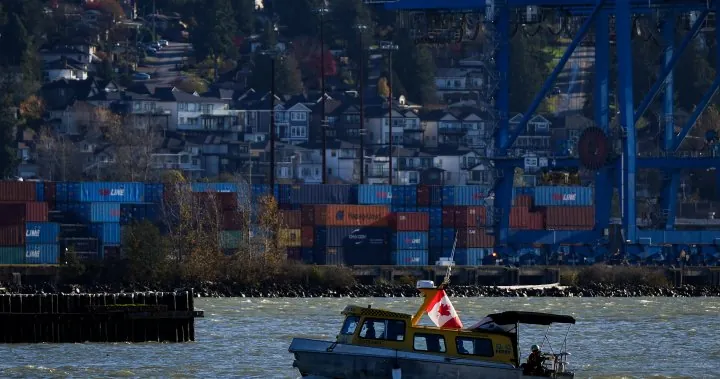
Ottawa Takes Bold Action to End Major Port Shutdowns with Binding Arbitration: What It Means for Canada's Economy
2024-11-12
Author: William
In a decisive move to restore operations at Canada’s largest ports, federal labor minister Steve MacKinnon has ordered an end to the ongoing shutdowns at key shipping locations in British Columbia and Montreal, implementing "final and binding arbitration" to resolve the disputes between dock workers and employers. This intervention comes after unions and management failed to reach a consensus, leading to a lockout of workers at the Port of Montreal and ongoing disruptions at various B.C. ports.
The labor stoppage has been nothing short of catastrophic, disrupting more than $1.2 billion worth of goods that typically flow through these channels daily, causing concerns about significant economic fallout. MacKinnon expressed frustration over the stagnated negotiations, citing that despite attempts to mediate discussions, progress has been minimal.
"The Canada Industrial Relations Board has been directed to order that all operations and duties at the ports resume and assist in reaching a collective agreement through binding arbitration," MacKinnon announced. He expressed optimism that operations would return to normal "in a matter of days," reflecting a sense of urgency given the implications for workers and the broader Canadian economy.
This order not only affects the ports in British Columbia and Montreal but also pertains to longshoremen at the Port of Quebec, where workers have faced a lockout for over two years. The minister highlighted the critical role these ports play in maintaining Canada’s reputation as a reliable trading partner, emphasizing, "Canadians have limited tolerance for economic self-harm."
This decision marks a significant step by the Liberal government, as it follows a similar intervention just months earlier to resolve a labor dispute involving major railway companies. Its reliance on binding arbitration has already ignited controversy, with the Teamsters union appealing the earlier resolution through legal means.
Critics have been swift to respond. NDP Leader Jagmeet Singh condemned the government's approach, accusing Trudeau's administration of capitulating to "corporate greed" and undermining workers' rights. "Canadians will pay for Trudeau's anti-worker attack," Singh asserted, pointing out that such back-to-work orders can suppress wages and jeopardize job security.
While acknowledging the criticisms, MacKinnon defended the decision, stating that responsible governance necessitates intervention when economic risks escalate. He recognized that the use of binding arbitration is sensitive and likely to cause debate among stakeholders, but insisted that the escalating losses demanded government action.
"Arbitration may not yield the same level of durability in agreements as those forged at the bargaining table," he noted. However, he maintained that it would facilitate a swift resolution, allowing the economy to get back on track and preventing further job losses that could affect many families across Canada.
As the labor landscape shifts, all eyes will be on how these developments will unfold and the long-term impact on Canada’s labor relations and economic stability. The government’s approach will certainly be a topic of heated discussion in the coming days, as both sides of the aisle grapple with the implications of this pivotal decision.
Stay tuned for updates as this situation continues to evolve, potentially reshaping Canada’s economic and labor landscape!









 Brasil (PT)
Brasil (PT)
 Canada (EN)
Canada (EN)
 Chile (ES)
Chile (ES)
 España (ES)
España (ES)
 France (FR)
France (FR)
 Hong Kong (EN)
Hong Kong (EN)
 Italia (IT)
Italia (IT)
 日本 (JA)
日本 (JA)
 Magyarország (HU)
Magyarország (HU)
 Norge (NO)
Norge (NO)
 Polska (PL)
Polska (PL)
 Schweiz (DE)
Schweiz (DE)
 Singapore (EN)
Singapore (EN)
 Sverige (SV)
Sverige (SV)
 Suomi (FI)
Suomi (FI)
 Türkiye (TR)
Türkiye (TR)